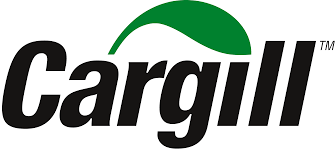As a result of the attack on Iran, nitrogen fertilizer at the port of New Orleans has seen an increase in price this week. Urea prices for barges in New…
Cargill Streamlining After Missing Profit Goals
Reuters’ Amy Lv and Naveen Thukral reported at the end of last week that “global trading house Cargill will undergo structural changes after missing internal earnings goals, with plans to streamline operations into three units instead of five, according to an internal company document seen by Reuters and two company sources.”
“Agricultural merchants like privately held Cargill are facing challenges as prices of the commodity crops they trade approach four-year lows and crop processing margins have fallen,” Lv and Thukral reported. “‘Our recent performance and the market trends unfolding in front of us have proven a clear and pressing case for change,’ the memo sent to staff by Cargill CEO Brian Sikes on Wednesday read.”
“Beginning Sept. 1, Cargill will transform from five enterprises into three: Food, Ag & Trading and a Specialised Portfolio, the memo said,” according to Lv and Thukral. “…The new Food enterprise will combine Food & Bio and Protein & Salt teams, while Cargill Risk Management and Metals will be moving into the new Ag & Trading enterprise.”

“‘At our core, we will always been a food and ag company. As such, these two enterprises are highly interconnected and will be supported by an independent operating system that builds our deep expertise, connections across the supply chain, and unique position at the heart of the global food system,’ the memo read,” according to Lv and Thukral’s reporting. “Specialised Portfolio will largely focus on Animal Nutrition & Health.”
Bloomberg’s Michael Hirtzer and Isis Almeida reported that “Jon Nash, who now leads Cargill’s protein and salt enterprise, will head up the food division, the people said. Roger Watchorn, who heads the agricultural supply chain, will helm ag and trading, while David Webster, whose current duties include chief risk officer, will lead the specialized portfolio, according to the people.”
Why Cargill is Streamlining Operations
Hirtzer and Almeida reported that the changes “come as ample crop supplies have squeezed profits for agricultural commodities traders. Rivals Archer-Daniels-Midland Co. and Bunge Global SA — which make up the so-called ABCDs of global agriculture commodity trading alongside Louis Dreyfus Co. — recently reported shrinking earnings.”
“For Cargill, the squeeze in margins was also compounded by the smallest American cattle herd in seven decades,” Hirtzer and Almeida reported. “The trading giant had spent much of the past decade turning itself into the US’s third-largest beef processor — a bet that paid off during the leadership of former CEO David MacLennan but that was just starting to sour when Sikes took over in January 2023.”
Streamlining Comes After Previous Layoffs
Hirtzer and Almeida reported that “Cargill last month cut some 200 tech jobs in various locations, including outside the US, one person said. It also announced in June it was building a separate technology hub in Atlanta, where it plans to hire some 400 workers in different roles than the ones eliminated.”
“’To deliver for our customers and the future of food and ag, we are building new digital technology and data capabilities,’ the company said in a separate statement last month,” according to Hirtzer and Almeida. “’This means eliminating some roles across several locations.’”
“Cargill also halted steel trading in China after a slowdown in activity,” Hirtzer and Almeida reported.





